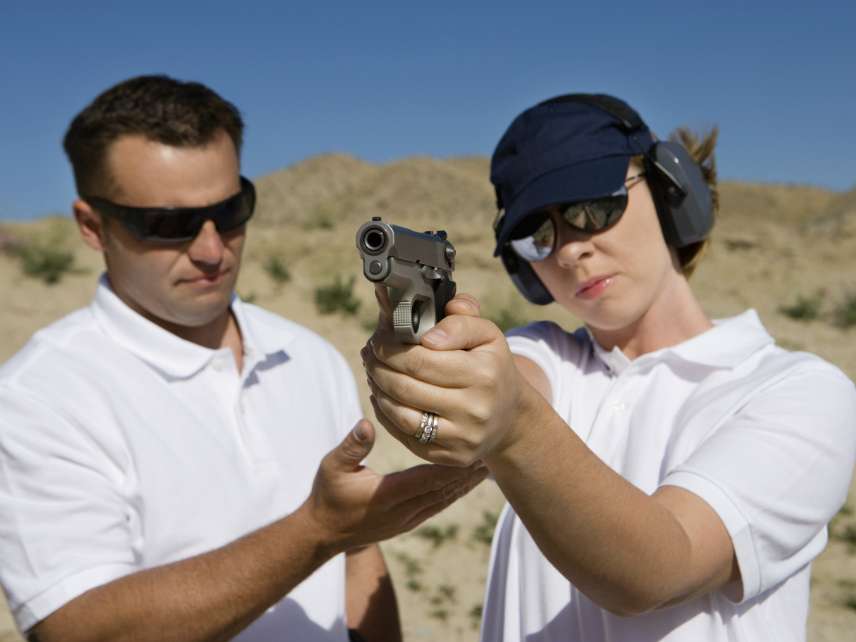In Defense of 'Gunsplaining'
Pedantry may be annoying, but sloppy firearms legislation is a lot worse.

Pointing out inaccuracies in your opponent's arguments is a cynical ploy to stop discussion. Or so I gather from Adam Weinstein, who just published a Washington Post op-ed taking gun control critics to task for "gunsplaining"—Weinstein's name for when one is "harangued with the pedantry of the more-credible-than-thou firearms owner" after one makes some incidental factual error about guns, such as calling AR-15s "high-powered" or confusing clips with magazines.
"Gunsplaining," Weinstein declares, "is always done in bad faith. Like mansplaining, it's less about adding to the discourse than smothering it." Were it not for those condescending gun snobs picking apart every rhetorical misstep, we would spend less time arguing over little details and more time having reasoned discussions over just which firearms restrictions we should implement next.
Weinstein does mention that gun control advocates sometimes get their facts wrong, and that they'll even exploit their supporters' lack of knowledge to build support for gun control legislation. Yet this phenomenon seems almost incidental to him; he saves his real fire for Second Amendment fans on Facebook and for inflammatory quotes from Joe the Plumber (remember him?).
But sloppy language doesn't just turn up in Facebook debates. It exercises a heavy influence on actual gun control proposals. In that context, pushing back on sloppy terminology isn't just legitimate; it's essential to the wider debate about gun ownership.
Take the 1994 assault weapons ban—the last major federal gun control measure, which banned all manner of weaponry because of their style, not their lethality. Modern-day opponents of gun control probably wouldn't spend so much time railing against invocations of "assault weapons" if such a hazy term were not currently being used as the basis for state and federal legislation.
More recently, there's the bump stock ban introduced by Reps. Carlos Curbelo (R–Fla.) and Seth Moulton (D– Mass.) after the Las Vegas massacre of October 2017. Their bill was written so hastily, and so vaguely, that it not only retroactively criminalized the possession of bump stocks; it banned "any part or combination of parts that is designed and functions to increase the rate of fire of a semi-automatic rifle"—which could include anything from binary triggers to heavier recoil springs.
Something similar happened after the Sandy Hook shooting of 2012, when the New York state legislature passed a bill banning non-existent "muzzle breaks" (as opposed to muzzle brakes), semiautomatic pistols that are "semiautomatic version[s] of an automatic rifle, shotgun or firearm" (it was unclear what this was supposed to mean), and loading more than seven rounds in a ten-round capacity magazine. These provisions were later struck down by a U.S. District Court Judge for their incoherence. The difference between "brakes" and "breaks" may be a mere typo on Facebook; in legislation, it's enough to undo a segment of a law.
Weinstein acknowledges that actual laws need to be "written with precision." He doesn't acknowledge that too many politicians are willing to sacrifice accuracy for speed. That seems a rather bigger problem than the presence of pedants on social media.
Rent Free is a weekly newsletter from Christian Britschgi on urbanism and the fight for less regulation, more housing, more property rights, and more freedom in America's cities.


Show Comments (325)